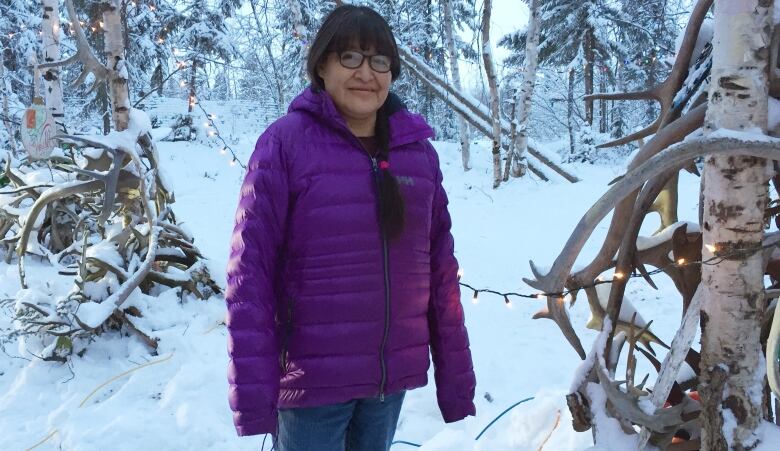No drilling in Arctic National Wildlife Refuge say Fort McPherson, N.W.T., protestors
Protestors gathered in Fort McPherson on Tuesday to rally against U.S. budget bill

Protesters in Fort McPherson, N.W.T., gathered Tuesday afternoon to demonstrate against opening Alaska's Arctic National Wildlife Refuge to oil and gas development.
Some residents say it's important to continue the fight to protect the caribou that their ancestors started @CBCNorth pic.twitter.com/j4lLSWd3dG
—@MackenzieLScottA United States budget bill that would allow for exploratory drilling in the region was initially approved in the U.S. House of Representatives on Tuesday, but three provisions of the bill were ruled by Senate staff to not comply with Senate rules.Another vote will be required Wednesday.
The wildlife refuge includes calving grounds for the Porcupine caribou herd, considered by the Gwich'in of Northern Canada and Alaska to be essential for food and spiritual sustenance.
"ANWR [the Arctic National Wildlife Refuge] is not up for negotiation," said Elizabeth Vittrekwa, Fort McPherson mayor and board member with the Gwich'in steering committee.
"That's exactly how theGwich'inpeople feel. If they want to go in there, there's going to be people standing up and saying no that cannot happen."
Gina V. Neyando was one of around 50 people who showed up to rally in Fort McPherson to protect the Arctic National Wildlife Refuge. @cbcnorth pic.twitter.com/leRPklun7w
—@MackenzieLScottWanda Pascal,chief of theTetlitGwich'inCouncil, keeps her front yard in Fort McPherson decorated withcaribou antlers.

"The reason I do this is to have the resemblance of the caribou in my yard, to protect these trees and to show how much the caribou means to us," she said.
"We survived on the caribou for generations, even way before my time. We the Gwich'inalong with the Yukon and Alaska [Gwich'in] survived off the caribou.
"We have to protect it for our future generations."
with files from Mackenzie Scott












_(720p).jpg)


 OFFICIAL HD MUSIC VIDEO.jpg)
.jpg)



























































































